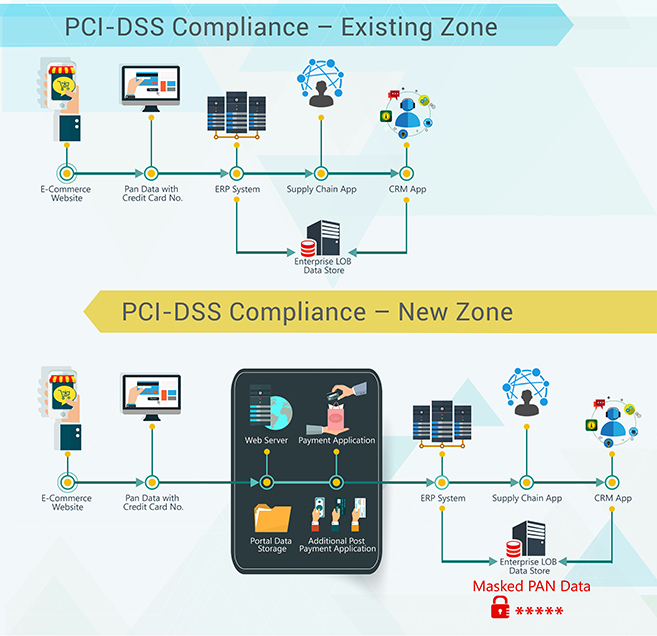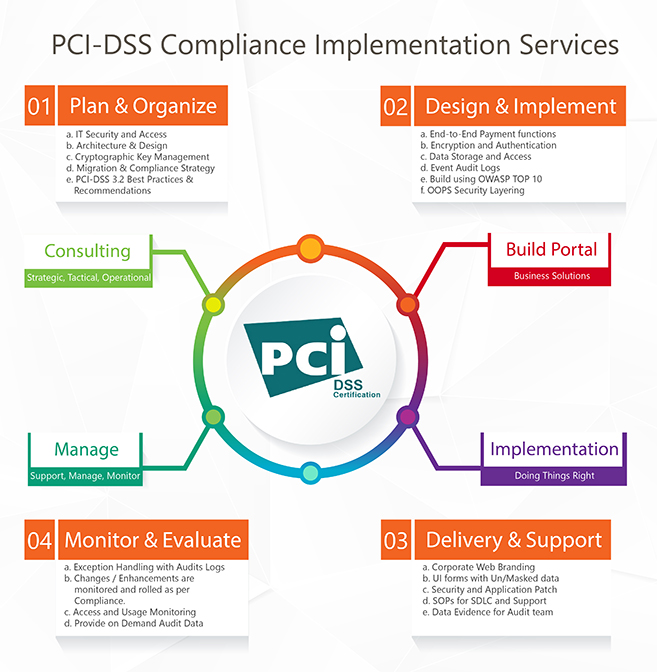
The Payment Card Industry Data Security Standard (PCI DSS) is a widely accepted set of policies and procedures intended to optimize the security of credit, debit and cash card transactions and protect cardholders against misuse of their personal information. The PCI DSS was created jointly in 2004 by four major credit-card companies: Visa, MasterCard, Discover and American Express. Today, the security of cardholder data has become a more serious concern to businesses worldwide. The reasons for this include high-profile and persistent data breaches, regulatory concerns in financial services and other industries, enactment of regulations regarding reporting of data breaches, changes to court rules requiring availability and proof of integrity of electronically stored information submitted as evidence, and tangible and intangible losses due to breaches. As such, ensuring effective and efficient implementation of PCI DSS goes a long way toward securing transactions and mitigating breaches
Our IT Services for PCI-DSS Compliance Management are based on the Information Security Standards & COBIT Frameworks as below. (The rationale for using COBIT as an information security governance framework is that it integrates information security into the controls of the whole ITG framework.)

CheckExplore offers our specialized and skilled team of security professionals including domain SMEs (subject matter experts), researchers and thought leaders - all dedicated to one thing — providing clients with the best cyber security program possible thru Information Security & Advisory services. Each of our information security consulting specialists is committed to performing in-depth research, developing customized solutions, working with clients to solve specific security issues and pioneering new approaches to cyber security.
Get expert testing to find and assess security vulnerabilities and risk. Whether testing your applications, networks, employees or your team, you'll be armed with new ways to strengthen your organization’s security posture against cyber threats.